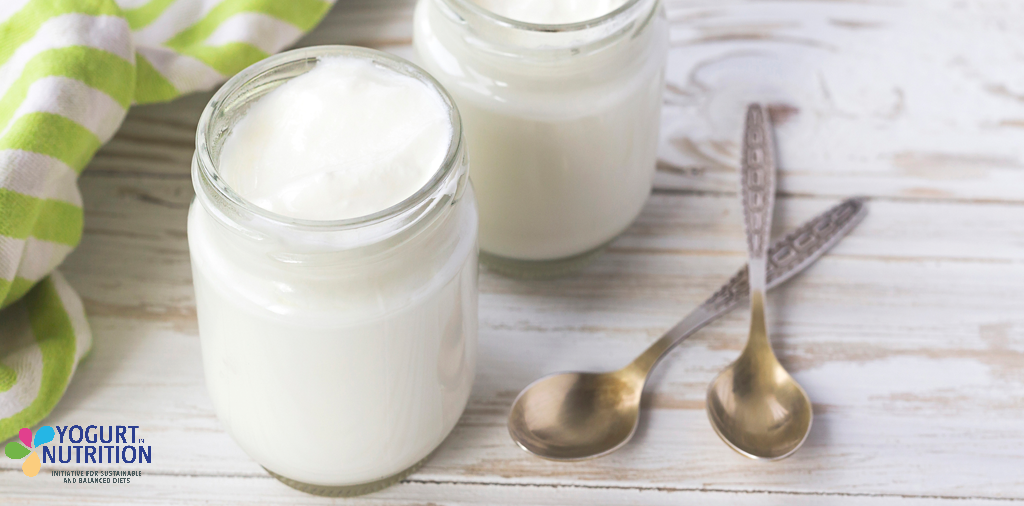Yogurt is an excellent source of high-quality proteins, which are composed of 80% casein (insoluble milk protein) and 20% whey (water-soluble milk protein). In fact, we speak of “high quality” proteins because milk proteins are well digested and absorbed (good bioavailability), and contain a good mix of amino acids (including the essential amino acids, which cannot be synthesized by the organism and are vital for its growth and maintenance) [1]. The high nutritional value of milk proteins is well preserved during the yogurt making process.
Do yogurts have more proteins than milk?
Some brands of yogurt have a higher protein content than that of milk because of the addition of non-fat dry milk during production. In addition, proteins in yogurt are more digestible than proteins in standard milk due to the fermentation process, which breaks down milk proteins into more easily, digested form [2].
There are also differences in protein content between types of yogurt, for example:
- Standard plain yogurt contains an average of 4 to 5,3% of proteins.
- Greek yogurt, a concentrated fermented milk, contains 9 to 10% of proteins,
- Skyr, a fermented fresh acid-curd soft cheese made from skim milk, contains 8,8 to 10% of proteins, about twice that of plain yogurt.
What are the health benefits of consuming proteins?
WHO recommends, as do most national recommendations, a daily amount of 0.83g of protein per kg for a healthy adult [3].
Protein is an essential nutrient that plays a vital role not only in growth, repair and development, but also in immunity, and the health of bones, muscles, skin, and nerves [1]. Moreover, a high-protein diet may have positive effects on blood pressure [4] and on long-term weight gain [5].
What are the health benefits of consuming yogurt proteins?
More specifically, dairy and yogurt proteins have been studied. The high-protein content in yogurt can enhance satiety and help to manage energy intake [6], and may protect against type 2 diabetes [7].
Most countries recommend 2 or 3 servings per day of dairy products, including yogurt (for example the food based recommandations in the USA, France, Germany, Italy, etc.) [8].
What about cow’s milk allergy?
The cow’s milk allergy (CMA), mainly observed in infants and young children, is caused by milk proteins: casein and whey proteins [9]. The ingestion of these proteins induces a reaction of the immune system thinking that the cow’s milk proteins are intruders to be eliminated. Thus, yogurt should be avoided for people with CMA.
Note that lactose intolerance is different from CMA. Lactose intolerance is not an allergy. The organism has difficulty in digesting lactose due to a lack of the enzyme that breaks it down, the lactase. Unlike people with milk protein allergy, those with lactose intolerant can consume yogurt because the lactose it contains is partially digested by bacterial cultures, so it will facilitate its digestion. [10]



